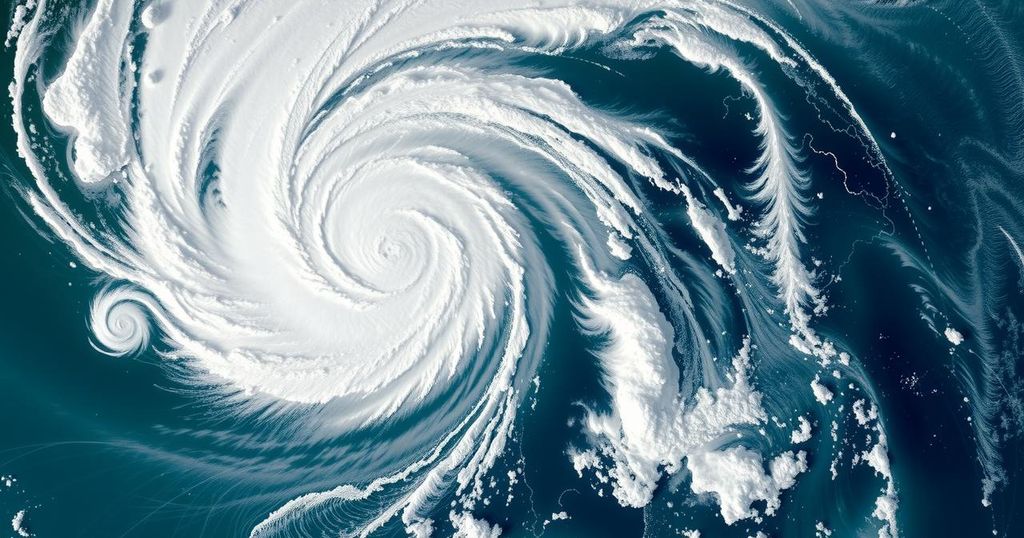Tropical Storm Dikeledi Strikes Mozambique, Following Destruction in Madagascar

Tropical Storm Dikeledi impacted northern Mozambique on Monday after causing fatalities in Madagascar. It brought destructive winds and substantial rainfall, prompting government warnings. President Nyusi has advised residents to seek safety and prepare for the storm’s effects. Heavy rainfall predictions and historical cyclone patterns underscore the need for vigilance as climate conditions may intensify such weather events.
Tropical Storm Dikeledi made landfall in northern Mozambique on Monday, following its destructive impact in Madagascar that resulted in the deaths of at least three individuals. The storm intensified upon reaching Mozambique’s coastal Nampula region, bringing with it hazardous winds and heavy rainfall, as reported by Meteo-France, the French meteorological organization. Flood warnings have been issued by Mozambique’s National Institute of Meteorology (INAM), projecting rainfall amounts of up to 200 millimeters (approximately eight inches) accompanied by wind gusts reaching 180 kilometers (110 miles) per hour.
In response to the approaching storm, President Filipe Nyusi has urged citizens in affected areas to prioritize safety by seeking shelter and stockpiling essential supplies. “Go immediately to a safe shelter and stay there until the authorities give you further instructions,” he conveyed during a parliamentary session in the capital, Maputo. The previous extreme weather event, Cyclone Chido, which occurred in December, claimed the lives of at least 120 persons in northern Mozambique and caused significant damage in the region.
The storm’s trajectory could also see Madagascar impacted again later in the week, particularly its southwestern coast, as Dikeledi progresses southward. Cyclones typically form in the Indian Ocean during the months of November to March, and the present year has seen surface water temperatures nearing 30 degrees Celsius (86 Fahrenheit), a phenomenon linked to climate change that is intensifying storm activity across multiple oceanic regions.
The region’s susceptibility to severe weather events such as Tropical Storm Dikeledi is influenced by various climate factors. Cyclones in the Indian Ocean typically arise between November and March, a season characterized by heightened ocean temperatures. The current rise in surface water temperatures presents conducive conditions for storm development, with implications connected to broader global warming trends observed globally. Past cyclones, such as Cyclone Chido, have already inflicted substantial loss of life and property in Mozambique, underscoring the ongoing vulnerabilities faced by communities along the coast.
In summary, Tropical Storm Dikeledi represents a significant weather threat to northern Mozambique, following its deadly passage through Madagascar. As meteorological authorities predict heavy rainfall and strong winds, proactive measures from both government officials and residents are critical for ensuring safety. Historical weather patterns and current climate conditions highlight the ongoing risks associated with such storms, necessitating continued vigilance and preparedness in cyclone-prone regions.
Original Source: www.barrons.com






